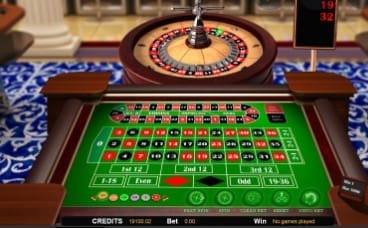An gambling system always involves simple mathematics. Gambling systems can fool unsuspecting online gamblers into thinking they can win large sums of cash. Some online casino websites or individuals who make money at online casinos may try to trick you into bought a book (or an e-book) about how to succeed with online casinos.
It is easy mathematics to calculate the odds of winning at online casinos. We can trust the numbers, but we also know that odds are based on chance. You will find the odds of winning at each online casino. The information will also include the ‘house advantage,’ which is the casino site’s percentage to make a huge profit.
Don’t be frank into thinking you can make instant millionaires by gambling. Think of it as a simple coin toss. A mathematical approach can be used to predict whether a coin will land on heads and tails. The same idea behind the question is at work here: If you toss your coin nine times and the result is tails, then the math or odds will tell you that the 10th time should be heading. It’s possible to do it. It’s a kind of experiment. You can try it and predict what happens each time the coin drops.
The odds of winning when it comes to coin-tossing are pretty straightforward – there is a 50/50 chance that you will win. Each side has its own set of odds of winning when you throw the dice in certain casino games. One in six cases of rolling a six is possible. It’s just mathematics, but it’s a system. No.
The systems and popular casino games have been around for over a century. Baccarat is one of the most well known casino games. Baccarat has many plans, including D’Alembert, Martingale, and Parlay. These systems claim to have the key to winning money online, based on mathematical methods.
A system that predicts a coin toss does nearly the same thing. This system states that if Red wins nine times, then Black must win the next. Another system instructs online casino players to increase their wagers and bets as they play. If you have a loss on your first round bet, say ten credits, then you can bet 20 credits on the second round. 30th is the third round. You are told by the system that you must win at some point. By increasing your stakes each round, you can expect a major win eventually. What if you run out? Or would it be more sensible to assume that you are only getting back the money you have already spent? Both of these questions are reasonable and can be answered with common sense.
It is clear that there is no winning strategy for online casino games or casinos in Vegas. It all comes down to luck, the roll, and the tossing of the coins. It’s all luck. Do not waste your money on an online casino that claims to be the best. Play smart and budget well – that’s the only wager worth making.
In the ever-shifting landscape of casino games, the house edge remains a steadfast beacon, a quantifiable advantage the casino wields over players, fluctuating across different games. Take the whirling dance of the roulette wheel: American roulette’s house edge is pegged at 5.26%, a number that reflects the impact of the extra double zero pocket. Cross the Atlantic to the European variant, and the edge is almost sliced in half, down to 2.7%, thanks to the singular zero.
As we unravel the tapestry of gambling systems, a thread of human fallibility emerges: the Gambler’s Fallacy. It’s the mistaken belief that the outcomes of a random game owe something to history, that they are somehow tethered to what came before. It’s like insisting that a coin, heavy with tails from a succession of flips, is due a head—despite each toss being a fresh 50/50 chance. This fallacy doesn’t just trip up the hopeful—it’s at the very heart of many a betting strategy.
Consider the strategies that whisper sweet promises of recovery post-loss. The Martingale System is a siren song, urging you to double bets after a loss. Labouchère plays a similar tune but with a complex betting sequence. These systems can be as beguiling as they are dangerous, potentially ravaging a bankroll when faced with the harsh reality of betting limits and the finite nature of resources.
When you stand at the gambling tables, you must do so armed with the truth: no system is bulletproof. To gamble is to play with the ebb and flow of chance. It requires the discipline of a budget, an understanding of the odds, and the wisdom to know when to step back. The seasoned gambler treats each play with the sobriety of an investor, but the heart of an entertainer.
Blackjack, however, flickers with the hope of strategy—the solid math of basic strategy, the art of card counting. Yet, in the online realm, where algorithms shuffle endlessly, card counting is rendered a relic. In the face of games like baccarat, craps, and roulette, strategy is but a spectator to the immutable laws of probability.
So, let us part with a flourish of counsel: Regard gambling as you would any form of paid amusement. As you lay your money down, do so with no more expectation of a return than the joy of the spectacle itself. Remember, the house possesses the edge; no algorithm or system can usurp that truth. Bankroll management is not merely a companion, but a guardian in the casino.
In sum, dance with luck, but do not be seduced by the illusion of a foolproof plan. Gambling should spark joy, not kindle the fires of loss. When you play, do so with passion, but anchor that passion with prudence.


